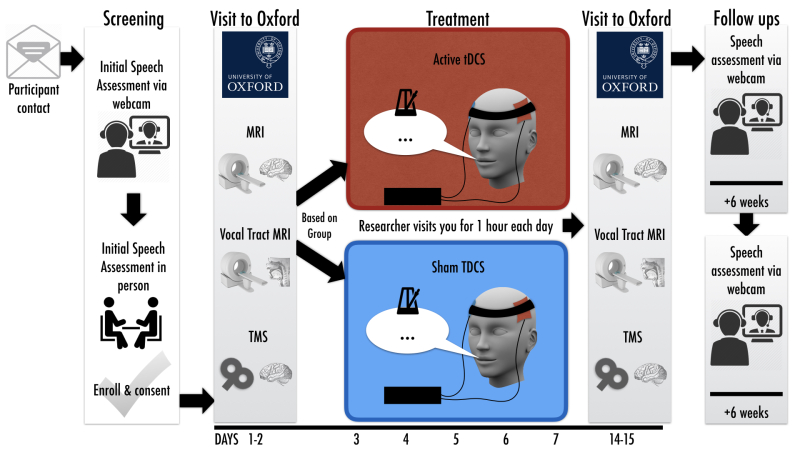Update 11/18/12 New Scientist has just posted a video showing (I believe) the device and test that will be used in Roi Cohen Kadosh’s upcoming study to study the efficacy of tDCS to enhance math abilities. Brain-zapping Kinect game boosts mathematical skills
The recent PBS article Boosting Kids’ Brain Power nicely documents the work of University of Oxford’s Dr. Roi Cohen Kadosh in testing and developing protocols for improving math and learning skills with tDCS. Through interviews, PBS follows the thinking of parents exploring the possibility of using tDCS to help their kid’s difficulties with learning math. One parent compares the possible harms of tDCS vs. pharmaceutical approaches and I think this is the key question. You can listen to the piece on the article page, or download the mp3 here.
The PBS story follows a trend on the uptick: Brain enhancement and the ethics thereof. In How Science Can Build a Better You, David Ewing Duncan tells us:
Over the last couple of years during talks and lectures, I have asked thousands of people a hypothetical question that goes like this: “If I could offer you a pill that allowed your child to increase his or her memory by 25 percent, would you give it to them?”
The show of hands in this informal poll has been overwhelming, with 80 percent or more voting no.
Then I asked a follow-up question. “What if this pill was safe and increased your kid’s grades from a B average to an A average?” People tittered nervously, looked around to see how others were voting as nearly half said yes. (Many didn’t vote at all.)
“And what if all of the other kids are taking the pill?” I asked. The tittering stopped and nearly everyone voted yes.
Another NY Times article Risky Rise of the Good-Grade Pill points out the extent to which kids are already using pharmaceuticals, illegally, to enhance brain power.
The boy exhaled. Before opening the car door, he recalled recently, he twisted open a capsule of orange powder and arranged it in a neat line on the armrest. He leaned over, closed one nostril and snorted it.
Throughout the parking lot, he said, eight of his friends did the same thing.
The drug was not cocaine or heroin, but Adderall, an amphetamine prescribed for attention deficit hyperactivity disorder that the boy said he and his friends routinely shared to study late into the night, focus during tests and ultimately get the grades worthy of their prestigious high school in an affluent suburb of New York City. The drug did more than just jolt them awake for the 8 a.m. SAT; it gave them a tunnel focus tailor-made for the marathon of tests long known to make or break college applications.
All of this points to an alarming skewing of culture and values I have no business addressing. It is easy for me to say however, that if my son or daughter were facing issues around attention or learning abilities, I’d certainly want the option of a proven, effective, and safe tDCS treatment before I’d consider a pharmaceutical approach.
To that end I wish Roi Cohen Kadish and his team at Oxford the best in their ongoing trials. See Also: Electrical brain stimulation improves math skills New Scientist
‘Human enhancement’ comes a step closer BBC
Brain stimulation ‘not a magic pill’ BBC Audio
The ethics of brain boosting Oxford

